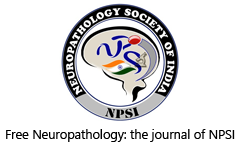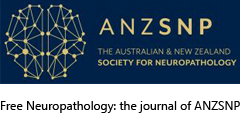Strategies to gain novel Alzheimer’s disease diagnostics and therapeutics using modulators of ABCA transporters
DOI:
https://doi.org/10.17879/freeneuropathology-2021-3528Keywords:
ABC transporter, ABCB1 (P-gp), ABCC1 (MRP1), ABCG2 (BCRP), ABCA1 (ABC1), ABCA2, ABCA5, ABCA7, Multitarget inhibitor (PANABC), Broad-spectrum modulator, Alzheimer’s disease, Amyloid-beta (Aβ / Abeta), Inhibition, Activation, Induction, Downregulation, PET Tracer (PETABC), Pattern analysis, Polypharmacology, Rational drug design and developmentAbstract
Adenosine-triphosphate-(ATP)-binding cassette (ABC) transport proteins are ubiquitously present membrane-bound efflux pumps that distribute endo- and xenobiotics across intra- and intercellular barriers. Discovered over 40 years ago, ABC transporters have been identified as key players in various human diseases, such as multidrug-resistant cancer and atherosclerosis, but also neurodegenerative diseases, such as Alzheimer’s disease (AD). Most prominent and well-studied are ABCB1, ABCC1, and ABCG2, not only due to their contribution to the multidrug resistance (MDR) phenotype in cancer, but also due to their contribution to AD. However, our understanding of other ABC transporters is limited, and most of the 49 human ABC transporters have been largely neglected as potential targets for novel small-molecule drugs. This is especially true for the ABCA subfamily, which contains several members known to play a role in AD initiation and progression. This review provides up-to-date information on the proposed functional background and pathological role of ABCA transporters in AD. We also provide an overview of small-molecules shown to interact with ABCA transporters as well as potential in silico, in vitro, and in vivo methodologies to gain novel templates for the development of innovative ABC transporter-targeting diagnostics and therapeutics.
Metrics
Published
How to Cite
Issue
Section
License
Copyright (c) 2021 Jens Pahnke, Pablo Bascuñana, Mirjam Brackhan, Katja Stefan, Vigneshwaran Namasivayam, Radosveta Koldamova, Jingyun Wu, Luisa Möhle, Sven Marcel Stefan

This work is licensed under a Creative Commons Attribution 4.0 International License.
Papers are published open access under the Creative Commons BY 4.0 license. This license lets others distribute, remix, adapt, and build upon your work, even commercially, as long as they credit you for the original creation. Data included in the article are made available under the CC0 1.0 Public Domain Dedication waiver, unless otherwise stated, meaning that all copyrights are waived.



















